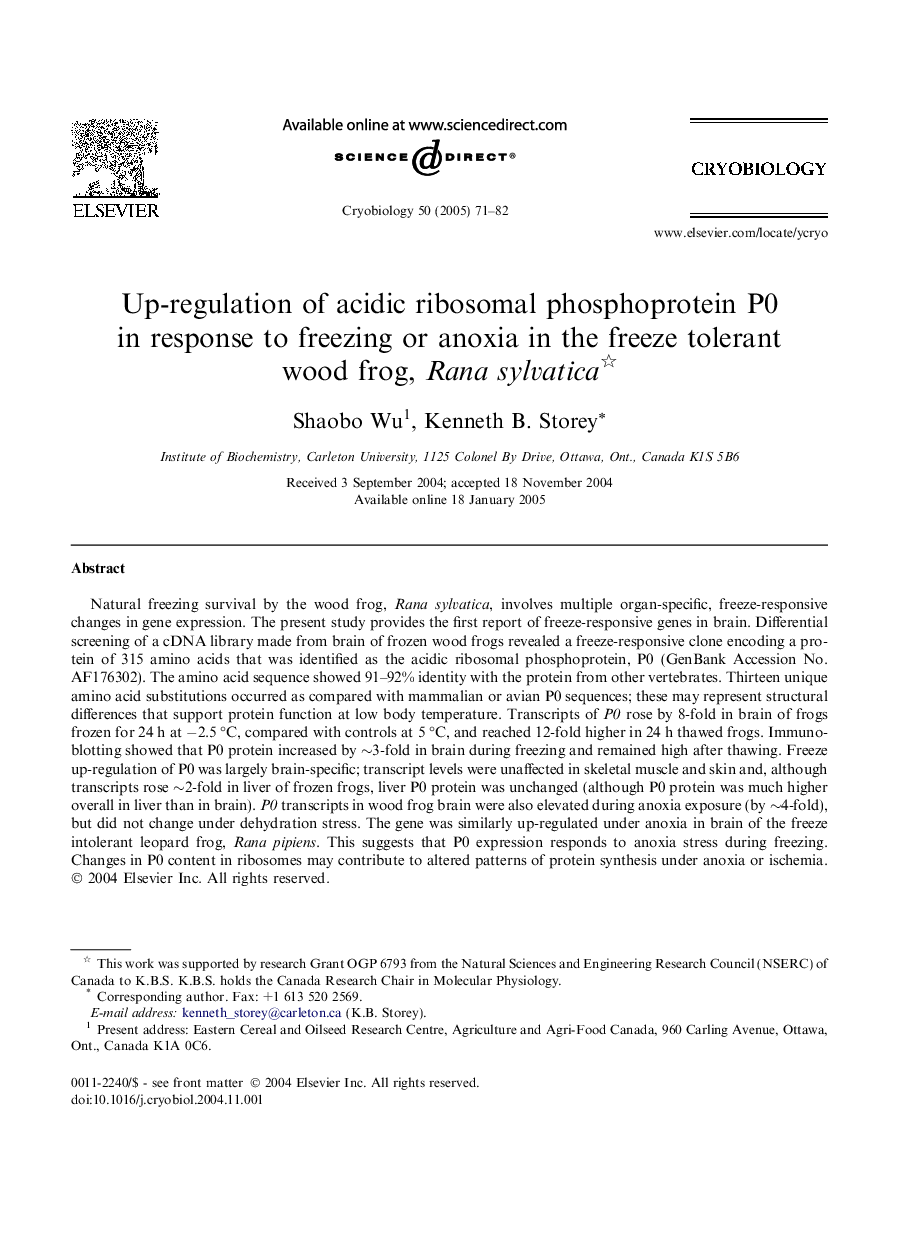| Article ID | Journal | Published Year | Pages | File Type |
|---|---|---|---|---|
| 10928888 | Cryobiology | 2005 | 12 Pages |
Abstract
Natural freezing survival by the wood frog, Rana sylvatica, involves multiple organ-specific, freeze-responsive changes in gene expression. The present study provides the first report of freeze-responsive genes in brain. Differential screening of a cDNA library made from brain of frozen wood frogs revealed a freeze-responsive clone encoding a protein of 315 amino acids that was identified as the acidic ribosomal phosphoprotein, P0 (GenBank Accession No. AF176302). The amino acid sequence showed 91-92% identity with the protein from other vertebrates. Thirteen unique amino acid substitutions occurred as compared with mammalian or avian P0 sequences; these may represent structural differences that support protein function at low body temperature. Transcripts of P0 rose by 8-fold in brain of frogs frozen for 24 h at â2.5 °C, compared with controls at 5 °C, and reached 12-fold higher in 24 h thawed frogs. Immunoblotting showed that P0 protein increased by â¼3-fold in brain during freezing and remained high after thawing. Freeze up-regulation of P0 was largely brain-specific; transcript levels were unaffected in skeletal muscle and skin and, although transcripts rose â¼2-fold in liver of frozen frogs, liver P0 protein was unchanged (although P0 protein was much higher overall in liver than in brain). P0 transcripts in wood frog brain were also elevated during anoxia exposure (by â¼4-fold), but did not change under dehydration stress. The gene was similarly up-regulated under anoxia in brain of the freeze intolerant leopard frog, Rana pipiens. This suggests that P0 expression responds to anoxia stress during freezing. Changes in P0 content in ribosomes may contribute to altered patterns of protein synthesis under anoxia or ischemia.
Related Topics
Life Sciences
Agricultural and Biological Sciences
Agricultural and Biological Sciences (General)
Authors
Shaobo Wu, Kenneth B. Storey,
